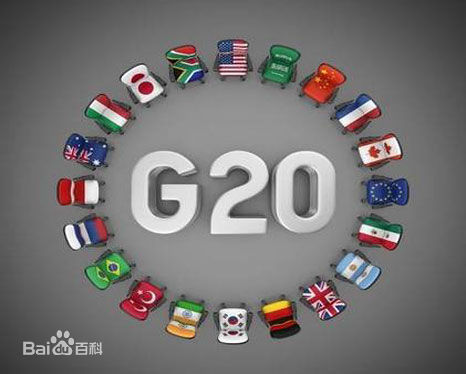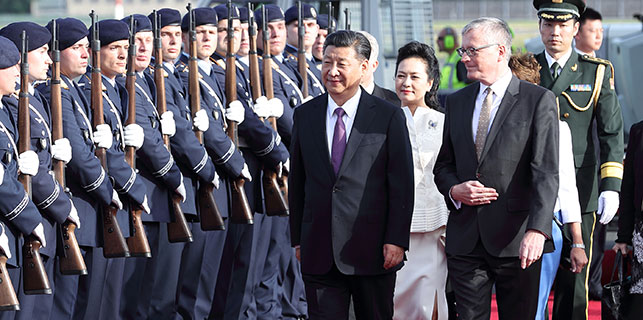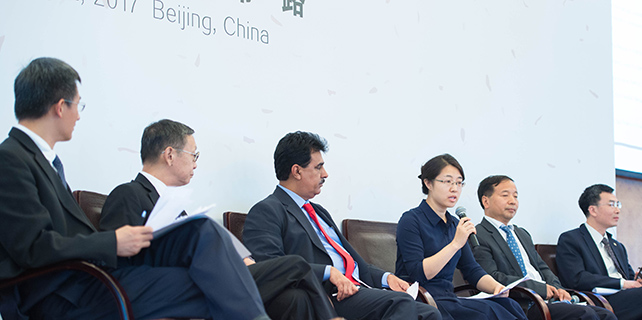Three things to watch out for at the G20
|
 |
|
The G20 meeting 2017 is held in Hamburg, Germany, on July 7-8. [File photo] |
At the risk of understatement, it is fair to say that the forthcoming G20 meeting in Hamburg is different from previous ones.
Right from the start it was a mismanaged mess. The German government wanted to show the world that in a democracy, protests are tolerated, and therefore it was decided to hold the summit in a port city. What has resulted, however, is extreme strain to the law enforcement services, and police, and increasing protests, risking derailing the entire summit.
German officials are privately worried that security will be a huge concern, and if protests erupt like the G8 meeting in Genoa in 2001 plagued by violent demonstrations by the anti-globalization movement that led to protesters being shot and killed, that would be a terrible blow to Western unity in these fraught times.
Perhaps because of that, Chancellor Merkel chose a safe bet of climate change as the focal point of the summit. Literally every other topic would have proved contentious, threatening a split. Everything, from Islamic terrorism, to uncontrolled migration, to wars in Middle East, to ISIS developing operations in Asia, to potential conflicts in hotspots across the globe, to trade imbalance, on which the leaders of the world’s strongest economies believe there is no guaranteed consensus and no easy response.
Also, the environment is the one topic that finds the United States completely opposed to the rest of the group, so Chancellor Merkel would try to use it as a rallying cry in her potential bid to become leader of the free world.
But there are three more things that are important and require our attention.
The first, and most important, is that there is a chance of America-Europe trade war. The EU has a potential to become a hegemon. Yes, of course, it doesn’t have the military might to dictate geopolitics, but it definitely has the economic prowess.
It has already used that economic power in coercive trade against China, India, Australia and US Last year, the EU fined Ireland for making a separate deal with Apple. This year, it imposed one of its largest-ever fines on Google. Adding insult to injury, Germans switched off a recent speech by the US commerce secretary midway, as everyone in the audience laughed.
The Germans have also opposed American sanctions against Russia, which they say are hurting the EU economy. The newspaper Der Spiegel recently listed a whole range of issues where Europe and America are threatening each other, and that doesn’t look nice. In fact, it definitely smacks of wartime protectionism.
The United States doesn’t intend to take this kindly. If there’s one global power, which is capable to standing up to EU trade policies, and slap punitive measures, it is America. After walking out of the Paris climate deal, the US is threatening to enact a border reinforcement bill, raising the price of German imports, to enforce a demand that Germany does something to cut the trade deficit.
The question is, which side China will stand on. Will it side with US in case of a trade war? Or with Europe?
Which brings to the second most important issue, the talk between President Trump and President Xi. It is almost inevitable the focus will be North Korea. While Trump has changed remarkably since his campaigning days of vitriol, he doesn’t quite understand the North Korean situation well.
This is why he depends on China, and it is imperative the momentum that was there in the last meeting between the leaders is carried forward. Trump is volatile, and the recent understanding between China and US on the total denuclearization of the Korean peninsula was perhaps the most positive thing that has happened in the last two years. That is a must and needs to continue.
There is, however, talk of the Xi-Trump “romance” is souring in the American media, after the introduction of sanctions by the US against a Chinese bank over its alleged dealings with North Korea. However, for the greater good of the region, that uncertainty needs to be overcome.
Finally, there will be a Trump-Putin meeting. The entire world will be watching Trump, to see if there’s any concession from American side. There’s a section of American media portraying Trump as being in collusion with Russia. That is of course untrue, but the pressure will be on Trump to prove that he is tough with Russia.
He, however, will be seeking détente with Russia, and Russians will be watching him as well, to see what concessions can be wrung out of him. Ultimately, it depends on Europe. If Europe acts too tough with the US, President Trump, whimsical as he is, will align with Russia against EU.
That would be an interesting scenario indeed. And possibly an unpleasant one for Eastern Europeans.









